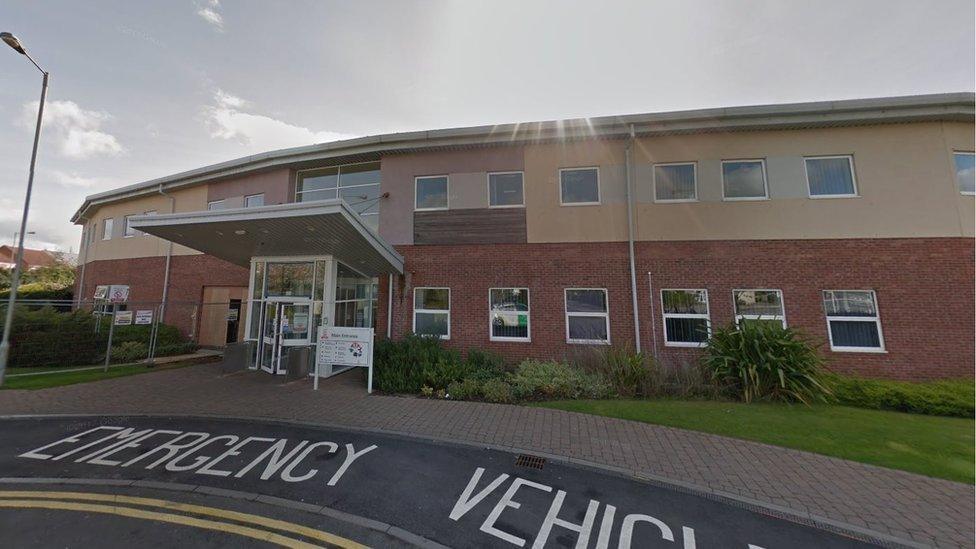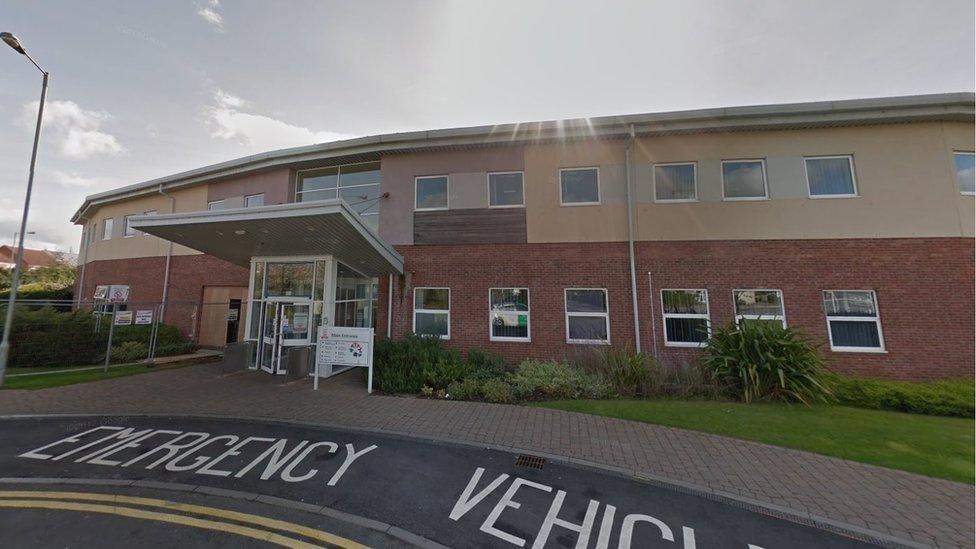Darlington hospital patient 'ignored' over abuse reports
- Published

West Park Hospital has been criticised by a number of patients in recent years as well as by health watchdogs
A woman admitted to a heavily criticised mental health unit has called for an investigation after her complaints about the use of excessive force were not "listened to".
The patient, who the BBC is identifying as Laura, was admitted to Darlington's West Park Hospital in 2019.
She said staff used physical restraint on her without justification.
Tees, Esk and Wear Valleys NHS Foundation Trust said it was "committed to providing the best possible care".
Laura was admitted to the hospital as her mental health deteriorated when her partner was dying with cancer.
On one occasion she was "pinned to the floor" by nine staff as she tried to leave the ward after taking a healthcare worker's ID badge, she said.
'Horrendous experience'
Wearing a surgical boot having recently broken her ankle, Laura alleged she was "screaming out in pain" and "dragged" faster than she could walk along a corridor to a room.
Inside was a mattress on the floor, a toilet that was "leaking sewage" and a sink without running water.
"I accept I shouldn't have [taken the badge], but I was very unwell at the time," she said.
"I have a diagnosis of complex post-traumatic stress disorder (PTSD) and having people pin me to the floor was the most horrendous experience."
She said she suffered bruising, scratches and a "serious injury" to her shoulder when she was restrained again the following day as staff transferred her to Middlesbrough's Roseberry Park Hospital.
"I was just lying on the mattress, terrified of what was happening. Staff piled in and put me in restraints. They had no legal justification to put their hands on me [in that situation].
"As soon as I was admitted to the new ward I told staff I had been abused. It's recorded 13 times in my notes. Not one person believed me."
She added the trust finally admitted safeguarding referrals should have been put in place for her care following 18 months of meetings but that she had not received an apology.
"I should've been listened to. This needs to stop now. There needs to be a proper investigation."
'Significant reduction'
Jennifer Illingworth, director of operations at the trust, said "restrictive intervention" was only used as a last resort when the safety of a patient or staff was at risk.
She added there had been "significant reductions" in its use in recent years and the organisation remained "committed to reducing this further" across all its services.
The trust was last month served with a warning by health watchdogs over safety failures following the death of a patient.
That followed previous criticisms, including claims vulnerable patients were able to access deliveries of crack cocaine.

Follow BBC North East & Cumbria on Twitter, external, Facebook, external and Instagram, external. Send your story ideas to northeastandcumbria@bbc.co.uk, external.
Related topics
- Published1 April 2021

- Published26 March 2021

- Published23 March 2020

- Published18 February 2020
